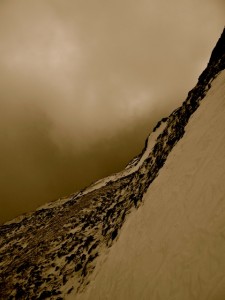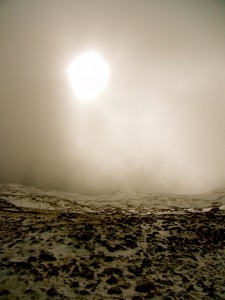“Know when to rise and when to retreat
if you wish to see another sunrise”
– Himalayan muleteer saying –
There are mountains that quietly come under the heading of ‘understated beauty residing in plain site’; Shika Mountain in northwestern Yunnan Province, just kilometers west of Zhongdian, Gyalthang (or in its most recently purchased title, Shangrila) might easily fall into that category. Shika, like many such eruptions of stone, invite and tempt with their promise of ‘another place’ and another space. It is what lies beyond that interests, as opposed to its face.
What makes a mountain, a body of water or a simple tree sacred to the Tibetans is a belief in its earth-bound sanctity, an irony considering the very remoteness of the great mountain lands. Shika and its surroundings remain seen but little explored by all but that essential of the highlands, the yak.
Far from being immense, it is at 4,392 metres, more of a subtle block that leads to a range that in turn ushers one to more interesting places. Mountains the world over have this ability to hint and inspire of places in the mind – but beyond the eye. This very fundamental feature has eternally drawn wayward wanderers, adventurers, and masochists to the earth’s peaks.
Shika (in the local dialect of Tibetan Shi means sacred location, and Ka simply means place of offering or snow) is, like many Himalayan spires and ranges, part forlorn and part magnetic – drawing one closer to sate a curiosity and test mortality. It is a mountain that acts as a conduit to other lands, other mountain ranges and it holds a bit of magic. The valleys and passes beyond and behind lead northeastward toward the great snow mountains – toward the Himalayan Plateau and that powerful harbinger of water – the Yangtze. The surrounding valleys long ago played a modest part in ushering caravans laden with goods and bodies onto the more significant trade routes heading to the great market towns.
Claw lines scratch in its slopes tell of centuries of logging and transport by locals. Striating paths crawl up only to disappear in yet another fold of stone and forest. Villagers below the range often warn of winds that gust down upon them – the belief is the winds coming from the north or west out from the Himalayas are to be seen as warnings of pending storms. Wind too, like the sacred elements of wood, water and stone carries meaning that is measured in an unambiguous quote of Tibetans, “Wind is the origin of all things”.
Moving up into the greater Shika range my intention is (as always) to visit a place that is, from down below, completely unseen and unpredictable.
November and December brings the first signs of powerful change; ‘winter change’. My access route has remained the same for years – an aged pathway, etched into the earth heading upwards behind the village of Bulun. Striating at times, zigzagging at others, the pathway weaves upwards on a journey that is seemingly endless.
A steady plodding pace leads in hours to a white furious world of pellets driving horizontally through the shrieking air. It has become no less than a gorgeous winter tempest that in its force erases visual references. Mountain’s rampant power hints at why so many see its empires as sacred. Nothing dictates the natural elements within its great walls.


